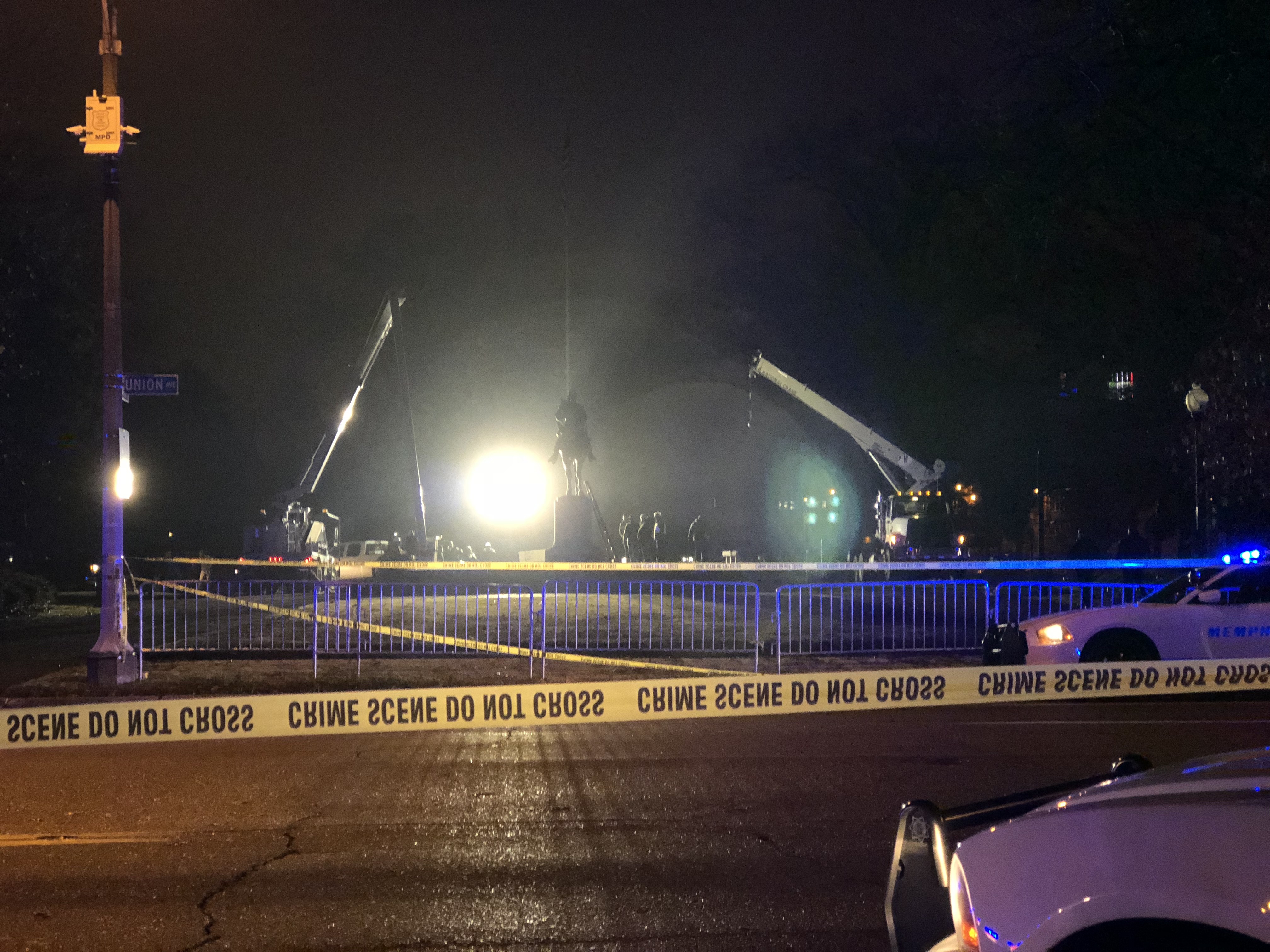
Minutes before Nathan Bedford Forrest’s statue was removed from Health Sciences Park
After investigating Memphis’ December sale of two public parks, the state comptroller’s office announced Wednesday that the city’s actions were in accordance with the law.
Lt. Gov. Randy McNally, R-Oak Ridge, and House Speaker Beth Harwell, R-Nashville, requested that the comptroller’s office determine if the city acted in compliance with the Tennessee Open Meetings Act, among other laws when it sold the parks to Memphis Greenspace, Inc. for $1000 each.
The review showed that the Memphis City Council did give sufficient notice of its meetings and agendas, and did not violate the state open meeting laws.
The auditors also concluded that the city’s code of ordinances allows the sale of parks to a non-profit at less than market value, but that the city didn’t follow all of the guidelines for making the sale.
The city failed to require Greenspace to submit an application to the City Real Estate Department in order for the group’s financial strength and stability to be determined.
But, city officials said they were able to gauge Greenspace’s stability through meeting directly with the non-profit’s leadership.
The comptroller’s office recommends that the city and Greenspace come to a formal understanding about the storage and protection of the monuments.
In response to the comptroller’s findings, the city’s chief legal officer Bruce McMullen said: “The state audit reinforces what we have stated all along — the sale of the parks and statues was proper and legal.”
Memphis’ sale of the parks last year followed the Tennessee Historical Commission’s denial of the city’s waiver request to remove Nathan Bedford Forrest from Health Sciences Park.
In December, Health Sciences and Memphis Park were sold, and monuments of Forrest, Jefferson Davis, and James Mathes were removed by Greenspace hours after.